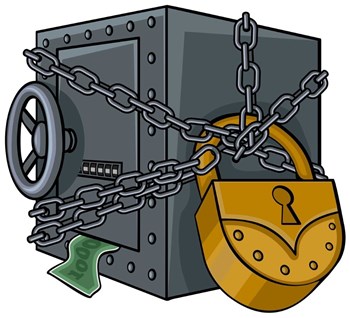
Do unto others as you would have them do unto you: It’s the golden rule taught to children, but it bears repeating for adults considering board positions with condominium associations.
Anyone in a board position is bound by fiduciary duty, a term people probably don’t think about often but which is incredibly important. According to Gary M. Daddario, a partner with the law firm of Perkins & Anctil in Westford, Massachusetts, “Fiduciary duty means that the members of a board owe a duty to act in the best interests of the association as they manage the association’s affairs and finances.”
Hold to a High Standard
In layman terms, Frank A. Lombardi, a principal with the law firm of Goodman, Shapiro & Lombardi, LLC in Lincoln, Rhode Island, explains: “It’s basically the elected board being held to a high standard where the relationship between the board and association is one of trust. The board should always ask, ‘What would a reasonably prudent person do in this situation?’ The guiding principles are that they can’t participate in ‘self-feelings’ and that they take all steps in good faith.”
What this looks like in action is simple, according to Rebecca Erlichman, an associate attorney with the law firm of Goldman & Pease LLC in Needham, Massachusetts. “Trustees of a condominium enforce compliance with the condominium documents for all unit owners,” she says.
Whether the unit owners are part of a co-op community or condominium association does not matter. When it comes to a breach in fiduciary duty, there is no difference. As Lombardi explains, “When we draft a complaint about a breach of fiduciary duty, we usually refer to the Business Corporation Act and corporate law to ascertain the relationship of a board to its directors. A co-op is set up like a corporation where each unit order is responsible to the shared perspective of the whole condominium group.”
And, Daddario further elucidates, “When comparing co-ops and condos, the fiduciary duty aspect is essentially the same. The difference between the two is more a legal distinction between the two forms of ownership. In a condominium, unit owners own their unit with the remainder of the association being owed by all based on the percentage of ownership assigned to each unit in the master deed. In a co-op, the property is owned by the corporation with owners being the owners of shares of that corporation with a proprietary lease relative to their unit.”
For both co-op communities and condominiums, in Massachusetts and Rhode Island, there is no one governmental agency that monitors or enforces a board's adherence to its fiduciary duty to owners or co-op shareholders. This does not mean that governmental agencies don’t become involved. “It depends on the nature of the issue involved,” Erlichman explains. “For example, we had a recent case where a unit owner had water leaking into her unit from above, and the condominium trust did not investigate the source of the water despite repeated requests. “The unit owner ultimately requested that a city health inspector come inspect the unit, and the health inspector identified the presence of mold and stated it was caused by water damage as a result of a malfunctioning HVAC system in an upper unit. The unit owner was able to use the report as evidence as she worked to convince the condo board to take action.”
In general, though, Daddario, Erlichman, and Lombardi all state that the court system is usually the most utilized branch of the government for resolving breaches of fiduciary duty. This, however, involves unit owners actually bringing forth claims regarding the actions of trustees and board members.
The legal experts also agree, too, that the courts are not the first avenue to take if a board of trustees or board member is neglecting its fiduciary duty to its community. According to Erlichman, “Filing a lawsuit against an individual trustee can be difficult, as many condominium documents provide that individual board members are indemnified against personal lawsuits for actions taken while they were acting as trustee.”
So, the “first step,” adds Lombardi,” is to make a request for action by sending a letter to the board, saying you would like a meeting and for all records to be provided. At the special meeting you should detail what happened and indicate that if the board member is found to be acting improperly, that you will seek dismissal from the board.” Daddario further says that “the alleged wrongdoing and the demand for remediation should be communicated clearly. Constituent documents often provide notice requirements and a response period. Some documents provide for notice and an opportunity for the offending party to be heard.” All three attorneys say that if a grievance ends up in court, judges will expect that all good, reasonable approaches have already been undertaken before appealing to the judicial branch of the government.
Into the Breach
What exactly constitutes a breach of fiduciary duty on the part of boards? “Generally,” Daddario says, “boards breach their fiduciary duty through improper actions such as the misuse of association funds or the enforcement of the association’s rules by a process other than that set out in their constituent documents or applicable law.” Erlichman provides some examples of what improper actions or lack of enforcement might look like: “Failure to conduct annual meetings and vote on a budget, failure to maintain common areas, failure to monitor noise level requirements, and failure to perform services such as trash removal, snow removal, yard maintenance, etc., that are provided for in the condominium budget and paid for by unit owners via monthly fees are all breaches of fiduciary duty.”
Lombardi says that boards need to be wary of decisions which might smack of self feeling. “We had a client who made a complaint of breach of fiduciary duty where he was charging the board members of inconsistent administration and enforcement of covenants. The client was being singled out because the board members didn’t like him, whereas other unit owners weren’t being held to the same enforcement. There are also garden-variety breaches where someone hires their brother-in-law for a job, insisting he was the best choice. Another example is someone on the board being in financial difficulty and voting against condo fee increases.”
What happens when a board or board member is found “guilty” of breaching their fiduciary duty? “On a practical and consistent basis,” Daddario says, “the penalty for an offending board member is most likely to be either removal from the board or the community’s decision to elect a new board member when the board elections next occur.” He explains that “the Massachusetts Condominium Statute does not provide for a penalty to board members” although “a successful court action against board members would likely result in an order for injunctive relief, meaning a change in the board’s behavior.”
According to Lombardi, “Willful and gross violations of the statute in Rhode Island to do all things in good faith usually draws punitive monetary damages. In a case where there was an intentional disregard of advice of counsel given, a judge ruled that all fees would be covered for the client. In election fraud cases, judges can rule that the election is invalidated.” For breaches which are dealt with internally, “boards can remove the duties from a board member. For example, a board member being charged with embezzlement can be removed from his duties as treasurer.” Lombardi says, though, that “only unit members can remove a person from the board itself. There needs to be a vote for the ‘voted in’ to be’ voted out.’” He adds, however, that “if it is an embezzlement issue, the police should be contacted,” which would imply a rather different set of penalties to the board member.
A Call to Action
Sometimes, though, the “penalties” are merely a call to action. Erlichman recounts a case where a unit owner had water leaking into her unit from the unit directly above. The plumber stated that the source of the leak was most likely due to a faulty HVAC system located in the unit directly above. The unit owner requested the upstairs unit owner to hire a plumber to investigate the HVAC unit but the upstairs unit owner failed to do so. The unit owner then asked the trust to request that the upstairs unit owner hire a plumber to repair/replace the faulty HVAC system, but the trust did not respond and did not request that the upstairs unit owner hire a plumber, despite language in the condominium bylaws stating that this was the proper procedure. Ultimately, the unit owner hired our firm to write a demand letter.”
So, what should people inclined to run for board positions keep in mind? According to Daddario, Erlichman and Lombardi, people should not be scared off from board positions simply because of possible penalties for breaches of fiduciary duty. Association documents typically indemnify board members to protect them from individual costs and penalties, and associations have liability insurance which often covers potential mistakes a board might make. In all three lawyers’ opinions, boards for the most part are made up of people who want to have a positive impact, not negative.
“Most people who run for board positions are ‘can-do’ people who want to contribute, feel a sense of duty and want to make things better,” Lombardi says. “You’ll see a retired accountant running for a treasurer’s position or a teacher who likes to serve and sees a board position as a good way to do so. You get the best of these people who want to protect everyone’s investments.”
In the end, what is the best advice for anyone considering running for a home owners’ association board? “The best boards,” says Daddario, “create a code of conduct, familiarize themselves with the constituent documents and encourage owners to do the same, have checks and balances regarding their finances, and operate with as much transparency as possible for the community. Transparency is achieved through open meetings, newsletters, memos to the community and, more recently, technologies such as an association website.” As boards seek to do all the above, fiduciary duty simply becomes a way of doing “good business” and breaches become negligible.
Paula Castner is a freelance writer and a frequent contributor to New England Condominium.






Leave a Comment